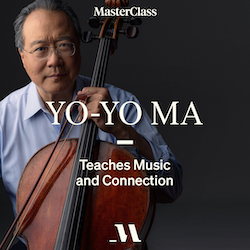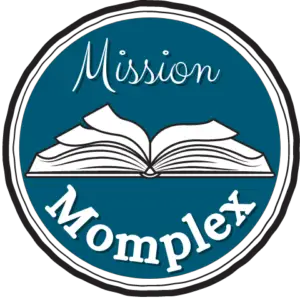Kids love to play music –some more than others. There are many ways to help your child stay interested in music if this is an area they are confident in. When children are musically talented, they need many opportunities to practice, learn, and witness musical performances.
Get your child into music by exposing them to concerts or live performances. Provide the right opportunities to see and practice music to reinforce skills and build on interests. Supply instruments, enroll them in classes, teach them ways to create. They will become musical champs.
In this post, I will explain some different ways to help kids gain exposure to music. Kids grow and develop at different rates. Remember to guide your child’s musical journey by understanding their interests, and they will flourish. We will also discuss other online platforms that help teach music, tools that musically inclined students should access, and ways to teach music appreciation.

This post may contain affiliate links.
How Can I Get My Child to Love Music?
Provide children with instruments, musical applications, and online tools to promote music. Show them how you sing –even if you don’t sing well– and give them opportunities to see live shows and performances. Enroll your kids in private lessons, music appreciation classes, and community groups.
Check out some different ways to teach your child to love music!
Infants
Babies love singing! If you are a new parent, be sure to sing to your baby and play varieties of music for your baby early on. Babies like different types of music, and some babies are sensitive. Be sure to remain aware of their sensory development, so you don’t overwhelm them with sounds. Try one at a time and see how they respond to specific musical styles.
Toddlers
Give toddlers different styles of instruments and add opportunities for musical learning to happen. Please encourage them to move their body to music and show them how you dance! Provide small bins of musical toys for them to try that are kid-safe and try to be sure they don’t have too many overwhelming buttons or batteries. Consider purchasing durable wooden maracas, child-friendly guitars, and bongo drums to start.
Young Children
Once children understand what music is, they probably want to see it in action. Please encourage them to make their own instruments or band ideas and promote their own musical performance.
Ask them to put on a show on your coffee table or make a musical stage outside with old wood. Explain to them that musicians show their audience their talent by practicing and creating experiences for people to witness and engage in.
Show them different local talent shows, older sibling concert band performances, and consider buying tickets to a local kid’s band. Check out the tube for their favorite performer and point out the different techniques they use, varieties of instruments, and themes.
When kids show a deep interest in learning music, it may be time to consider private lessons or community bands. Explore different online options, in-person classes, and school opportunities to provide more chances for your child to practice and engage in music.
Pre-teens
Older kids are probably exploring their interests and hopefully telling you what they like by now. If your pre-teen loves music, buy them gifts that promote their interests and encourage real-life experiences for them to explore their talent or musical activities that reinforce music appreciation.
Consider different ways to help them build their identity by buying books, real instruments and enrolling them in lessons that build on what they know. Send them to a cool show, find a local musician to meet, or introduce them to directors of local bands.
Facilitate their experience by learning more about their interests to understand what they like so that their materials and exposure to music reflect their genuine fascination with the subject.
Teens
Show teens proper venues to play at or ways to be a part of the community. Churches, schools, and community centers are a great way to start learning what is available.
Please give them the tools they need to listen to music and applications that help them learn music or play what they like. Buy them software, instruments, books, and programs that teach them what they are interested in.
Please encourage them to create their own themes and layers to sound. Take the time to understand what they are doing and explore their interests by asking questions and staying curious.
Monitor their interests, but try to understand that it is personal, so you learn to respect their boundaries. Be sure that you stay connected with your child by valuing their interests and providing opportunities for learning and exploration.
What to Get a Toddler Who Loves Music
Expose your toddler to music by providing materials for them to explore their musical interests. Find appropriate online classes, go to a local performance, or enroll them in a community program. Try to play music often and rent different instruments, so they learn to create songs.
This section may contain affiliate links.
1.) Record Player

The vintage record player was a hit in my house for years. It comes with five records and an easy-to-use crank button. Kids love interactive instruments. If they can’t play an instrument yet, this toy is sure to teach them to engage in a musical spirit from a young age.
2.) Band in a Box

This brand has many wooden instruments that are sure to stand the pressure of your tiny human. Melissa and Doug has xylophones, bongo drums, a rad piano –we had one when our kids were toddlers– maracas, recorders, and harmonicas! Check out the band in a box set for a little bit of everything!
3.) Piano Mat

There are so many toddler musical instruments and games for younger children. A one of a kind gift is this piano mat. I bought one for my kids when they were young, and they loved it!
4.) Loog Guitars
Kids' Guitar Reimagined: Loog GuitarsLoog guitars are made specifically for kids. The website is easy to navigate, and their items are separated by age --super helpful! They have bundles, accessories, and different types of guitars for you to choose from.
5.) Outschool Class (Free & Paid)
Have you heard of the platform called Outschool? It is a platform of teachers dedicated to online teaching over Zoom. There are tons of music classes and many that are suitable for toddlers and younger children. Some are even free.

Are Music Lessons for Kids Worth It?
It is totally understandable that you want to make the right choice for your family, financial situation, and child's ever-changing interests. There are a few things to consider before buying online music courses for your kids. Check out the list and think about it before you buy.
Things to Consider Before Buying Online
- Age
- Pricing
- Interests
- Musical style
- Available intruments
- Free versions
- Attention span
Benefits of Music Lessons for Children
- Improves memory
- Gives them an outlet
- Provides one-on-one instruction
- Enhances their creativity
- Promotes feelings of pride
- Refines language & development
What Online Platform is Best for Teaching Music?
There are tons of online platforms that teach music privately or in group settings. Depending on your child's age, you may want to expose them to social groups, community bands, games, toys, or private instruction.
This section may contain affiliate links.
Check out the list below for some recommendations on online platforms that teach music.
1.) Carson Dellosa Education (Free and Paid)
If you are looking for toys or music for children, Carson Dellosa may be appropriate for you. This website has books, printables, and activities sheets for kids, just starting with music. There are a bunch of free printables you could add to your curriculum.
2.) Maestro Classics (Free and Paid)

Younger children who love music might enjoy Maestro Classics. This website is full of opportunities for kids to immerse themselves in music. There are games, projects, free sheet music, and CDs that introduce children to music in fun and educational ways --The Nutcracker, Peter, and the Wolf, and Mike Mulligan, to name a few.
3.) Udemy (Free and Paid)
Udemy may be a suitable choice for older kids and teens for learning music theory, composition, or basics like reading sheet music or learning the proper rhythm. Their classes are pretty affordable and range from free to $25, even more, advanced courses.
4.) EdX (Free and Paid)
EdX has a pretty colossal directory of classes hosted by prominent individuals educated in their field. It is best suited towards older children and teenagers because they are primarily college-level courses. You can take free classes through the audit track, but they are not considered a certification. They have lessons specifically for music majors here, and many more options to choose from if you navigate to the courses drop-down menu.
5.) Online Music Lessons Today (Paid)
Online Music Lessons - Your Online Music School!This website provides live instruction for only $29. There are loads of teachers to choose from depending on the needs of your child. An easy-to-use directory lets you pick the age, day of the week, and the instrument.
6.) Future Learn (Free and Paid)
Future Learn, another online learning platform, is best suited for teens and young adults. Like a university program, these classes are taught by the best of the best --brands and professionals. There are free programs, courses available to buy individually or unlimited supply through the subscription-based classes.
7.) Piano for all (Paid)
Is your child interested in learning piano or keyboard? The $40 online course in Piano For All will give you access to Ebooks, videos, and lessons. There is a range of different levels and styles to choose from when you pick the most appropriate methods. They claim to teach underlying techniques and principles that students can apply to any style or genre of music.
8.) Rocket Piano (Free and Paid)
Similarly, the $40 online course called Rocket piano provides tutorials, free guides, and instructions on playing popular piano songs. There are beginners, intermediate, and advanced guides. And some categorized by genre --jazz, blues, spiritual.
9.) Masterclass (Paid)
 Give the Gift of an MasterClass Annual Membership
Give the Gift of an MasterClass Annual Membership
Masterclass is an online platform dedicated to providing programs and classes taught by the best in any chosen industry. They range anywhere from cooking, entertainment to conservation. Many courses are taught specifically for individuals who are musically inclined. Some are geared towards music and filmmaking. Others are closely tied to entertainment and songwriting. These programs are appropriate for older teens and young adults.
10.) Fender Play (Free and Paid)

Fender Play is a guitar website that provides lessons, songs, and step-by-step learning. This online platform emphasizes instructional videos for guitar, bass, and ukelele-- best utilized by older teens and adults.
11.) Artist Works (Paid)

ArtistWorks is an online community of teachers that provides instruction for all types of instruments and musical themes. They use asynchronous communication to upload their progress and then wait for feedback from the instructor. Pricing is set up by 3-6-12 month increments and tends to have frequent coupons. You can browse their selection of courses or choose which teacher you'd like your older child to work with.
12.) Virtu Academy (Paid)
If you want to choose just one or two lessons, Virtu Academy might be best for you. This online music platform lets users decide their classes without committing to a subscription. You can purchase packages to create a more accelerated learning environment, but you can choose which option suits your teen learner the best.
Conclusion
Getting your child interested in music can be easy when you consider the style of music they want to practice, the instrument they are into, their age, and pricing.
There are tons of online resources for kids who love music! It takes a little bit of digging, but once you understand which programs or materials are most suitable for your little learner, the better choice you will make when considering free or paid options.
